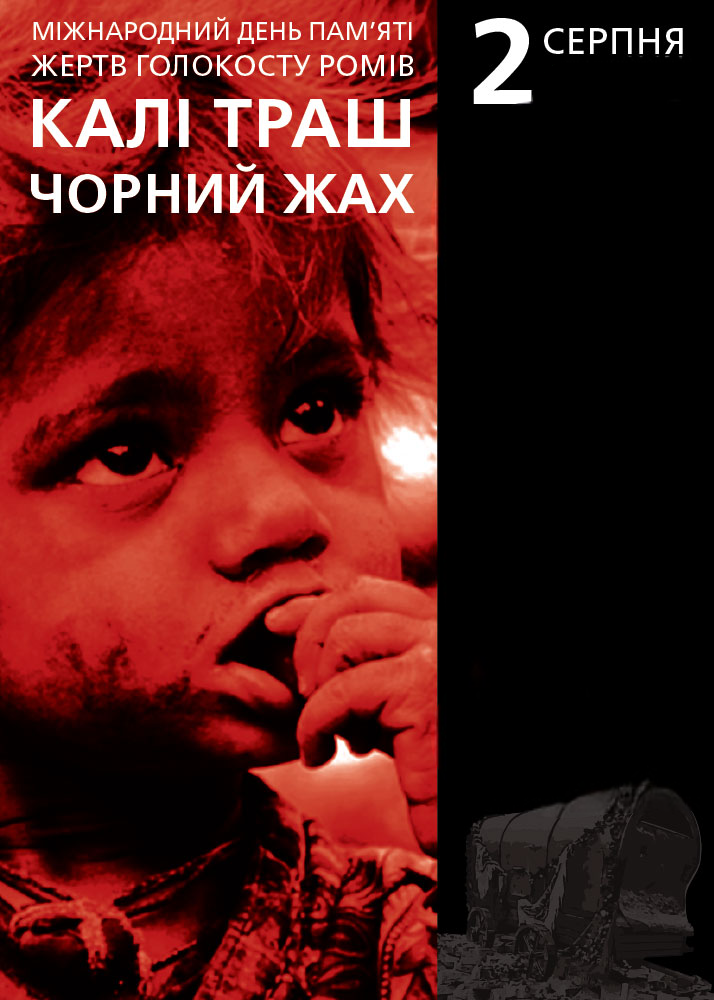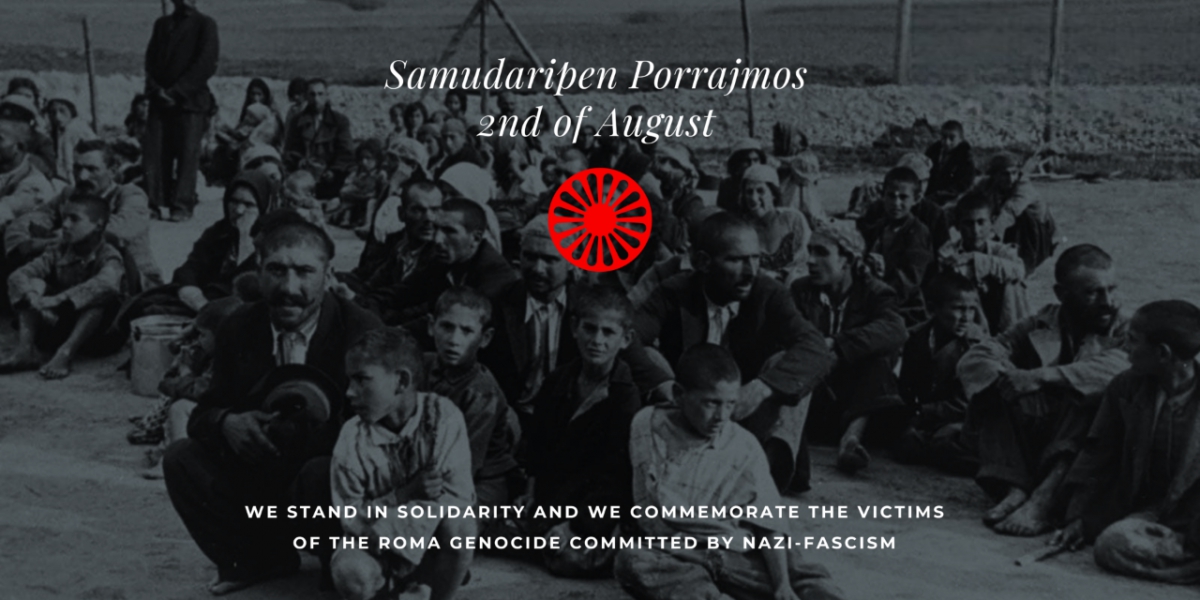Lecturer of the Psychology Department at the Dnipro Institute of PJSC "IAPM", legal expert, psychologist of the Amur-Nizhnodniprovskyi District Department of the State Institution "Probation Center" branch in Dnipropetrovsk region, member of the International Association of Psychologists and Consultants on Sexual Education Eduard Abashia informs about the following. Day of Remembrance for the Victims of the Roma Genocide is observed annually on August 2. In 2020, Fernand de Varennes, UN Special Rapporteur on Minority Issues, issued a reminder: "Almost eight decades have passed since the Nazis killed hundreds of thousands of Roma, who too often fell victim to mass killings and other gross human rights violations. Unfortunately, hatred, alienation and vilification of gypsies persist today in many parts of the world".
On the night of August 2-3, 1944, elderly people, the infirm, and mothers with small children tried to resist, but in vain: they were forced to enter the gas chambers of the Auschwitz-Birkenau extermination camp. Their execution marked the end of the so-called Gypsy camp.
According to researchers' estimates, between 600,000 and 1,500,000 Roma died during the Holocaust. The Roma ethnic group suffered the most from Nazi killings - over 90% of the Roma population in Austria, Germany and Estonia was destroyed in camps, ghettos, through gas and shootings, hunger, forced labor, diseases and medical experiments. Prisoners who could work were transferred to other camps.
In just one night, the Nazi SS formation killed about 4,300 people. This was one of the deadliest days during the "Porajmos" - the genocide of Sinti and Roma in Europe. The term "Roma" is used to describe various ethnic groups, such as Sinti, Kale and Gitano, who live in several European countries. In the past, these ethnic groups were nomadic, now most lead a settled lifestyle. Roma are called "the most numerous marginalized community in the world", they have been persecuted for hundreds of years.
On the day of mourning - Kali Trash (Black Horror), Roma around the world remember those who died from genocide during World War II.
On the territory of Ukraine, the following historically formed ethnic groups of Gypsy nationality are distinguished: Vlakhi, Plashchuni, Kyshynivtsi, Polish Roma, Lotvy, Chokenari, Russian Roma, Lithuanian Roma, Belarusian Roma, Mugat, Rudari (Lingurari), Crimean Gypsies (Krymi, Crimean Gypsies), Kelderari (Kotlyari), Hungarian Roma, Raseitsi (Gimpeni), Lovari, Servy, Kelmyshi, Ursari and others.
Crimean Roma (dayfa/tayfa, kyrymitika roma/krymurya) in turn absorbed Turkic borrowings; they practice Islam and speak the Crimean Tatar language. Small groups of Lyuli (Mugat), who identify themselves with Tajiks, migrated from Uzbekistan and Tajikistan to the eastern regions of Ukraine and Kyiv.
The Carpathian group of Roma is mainly represented by Hungarian (ungrika roma/rumungri) and Slovak (servitika roma) Roma and Vlachs, whose ancestors arrived from the Transylvania region during the 18th-19th centuries.
Given the large scale and irreparable social consequences of the Roma Holocaust, their socially vulnerable current situation in places of compact residence, the Verkhovna Rada of Ukraine adopted at the state level a resolution dated October 8, 2004 No. 2085-IV "On Observing the International Day of the Roma Holocaust", starting from 2004.

 Eng
Eng  Укр
Укр 